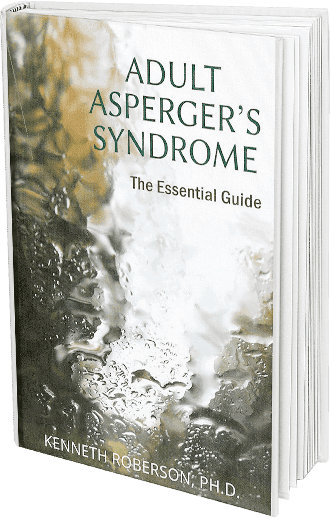
You suspect your spouse, friend, colleague or acquaintance has Autism Spectrum Disorder (ASD). For whatever reason, you’re worried. How do you talk about your concern and how should you go about suggesting the idea of seeking help?
Is it best to be honest and say what you are thinking? Should you be straightforward in recommending an evaluation and/or therapy? What about mandating help? Is that generally effective? Or should you be more discreet, try an indirect approach and hope the person will take the hint about the need for assistance?
Here are five suggestions I have gleaned from my experience as an adult Autism Spectrum Disorder psychologist. They may work for you in your particular situation or they may not, but the principles for each suggestion are worth considering. See what you think, take what seems useful, leave the rest and do what makes the most sense.
Distribute Responsibility
Chances are if you suspect the other person has Autism Spectrum Disorder you are also thinking that he or she is the one with the problem. That may be, but it’s not the whole story, nor is it the best mindset from which to recommend help.
You will get much further if you accept the fact that no one person is to blame. Whatever the problem is, you and your friend, spouse, family member, or acquaintance are involved in a relationship, and relationships can only occur when both parties contribute to the interactions between them. If you are willing to accept that it’s not the other person’s fault entirely, that contributions are made from many directions and sources, including from you, then your approach to a conversation about seeking help will more likely to be met with acceptance and appreciation.
Communicating your understanding that the other person is not to blame entirely, and that problems are generally shared, is the best way to suggest help that I can think of.
Reframe Behavior
Events or situations don’t have meanings apart from our interpretations of them. Suggesting, for example, that someone seek an evaluation for Autism Spectrum Disorder doesn’t, in and of itself, imply anything. It is simply a suggestion. But the person hearing it might read into it a certain meaning, such as a criticism, an attack on their character, or a hint that they are defective.
If you find this happening, see if you can suggest a positive view to replace the negative one that is being superimposed on the topic. In the case of recommending an evaluation, framing it as a way to uncover hidden personal strengths and discover effective solutions to long-standing difficulties can get around notions of criticism, attack or defectiveness.
Think positively. This will lead your recommendation for seeking help to be heard in a positive way as well.
Be Specific
Sometimes we become afraid that specificity is damaging when recommending help for someone. For that reason, we dance around the idea hoping that being vague about what we are recommending and why we are making it will be less likely to be a turn-off.
But the cost of this often is confusion. Instead of leaving the other person uncertain about what’s being suggested and why, be as clear and exact as you can be about what you want to be different, what you would like to have happen, and why.
In most cases, being precise and clear about your recommendation and the reasons for it is less likely to cause hurt feelings than being vague and ambiguous.
Do Your Research
When approaching someone about the idea of getting help, it pays to know ahead of time what help looks like. In the case of an evaluation for Autism Spectrum Disorder, find out what the process involves, how long it takes, what happens during an evaluation, the pros and cons of an evaluation, what steps one might take given the results of an evaluation, how much would it cost, how accurate is it, etc.
The more questions you can answer about what you are recommending, the more likely your recommendation will be heard.
Consider a Joint Initial Meeting
I have found that meeting together with the person who recommends help and the one seeking it is often a successful arrangement. Why someone is seeking my help can be discussed and understood more easily, as can the expectations of help for both parties. Differences of opinion and miscommunications can be addressed, and tensions or conflict are more likely to be resolved when everyone is available to discuss them.
An initial joint meeting also allows you to offer support and show you care, two critical requirements for someone with Autism Spectrum Disorder.
With these suggestions in mind, I hope you will feel more at ease about the idea of recommending help. Remember, you want what is best for the person you care about. Above all, that counts the most.




